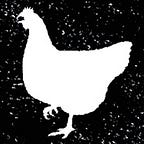Questions from Outer Space: A conversation with Diane Thiel
By Audrey Fong
Diane Thiel’s eagerly anticipated collection of poems, Questions from Outer Space, explores fresh and often humorous perspectives that capture the surreal quality of our swiftly changing lives on this planet. The poems travel through questions on many fronts, challenging assumptions and locating unique angles of perception. This thought-provoking book reflects a deep engagement with the natural world, a questioning of our built systems, the expansive wilderness of parenting, and the complexities of navigating outer and inner space.
Thiel is the author of twelve books of poetry and nonfiction. Her work has appeared in Poetry, The Hudson Review, The Hopkins Review, and many other publications. She is currently the Regents’ Professor of English and Associate Chair at the University of New Mexico in Albuquerque.
Audrey Fong: For readers unfamiliar with your work, how would you describe your poetry?
Diane Thiel: My poetry is often considered simultaneously lyric and narrative, though I also continually experiment and push boundaries. Some of my earlier work has dealt directly with the effect of war and trauma on future generations. This book continues observations about humanity and our complicated relationships with each other, with family, with our built systems and the natural world. A number of the poems explore the insights about our planet and the universe that science can offer. Many are also spiritual in their questions about our inner lives and how we might find our way in the world. Stylistically, I am drawn to the myriad possibilities of working in form, though many of the poems in the collection are free verse and experimental. The book has tanka, haiku, pantoum, sestina, villanelle, tritina, triolet, sonnet, and a number of invented forms as well. I try to allow each poem to find its true form over time.
AF: Your collection is described as a collection of “compelling poems with brave, insightful, often humorous observations of the world.” How do your observations connect to the title, Questions from Outer Space?
DT: A number of the poems in the book reflect the perspective of an outsider, an alien observing our current world and making a scientific report. Other, somewhat lighter ones, reveal the perspectives of children who, via their “untrained” views, can open our eyes and ears in new ways. A funny truth is that the title of the book, Questions from Outer Space, was a temporary one for a few different poems in the process of writing and organizing this book. It emerged as the natural title for the book when several poems throughout wore the name for a while.
AF: I love that you approach some of the poems from a perspective of a child because their “untrained” views can sometimes give them a similar perspective as an alien. Your collection takes us across the world and includes your global travel. Were there any particular destinations that impacted your collection?
DT: I have traveled from an early age, often on a shoestring and usually working on long term projects. This book has poems, especially in the third section, that reflect experiences in Greece, Peru, Bolivia, and Australia, among other places. There are also a few poems that stretch the idea of travel and include travel beyond earthly boundaries. I think certain kinds of journeys allow us to have a more expansive sense of the world and beyond. We have taken our young children throughout North America, Europe, and Australia by camper van, and our adventures and observations find their way into my poems.
AF: I wouldn’t expect anything less than travel beyond earthly boundaries from a collection titled Questions from Outer Space. I know that it’s probably hard to choose, but if you had to, which poem is your favorite in the collection and why?
DT: I find this the hardest question to answer because I truly can’t choose one. There are 67 poems in this collection, and each individual poem emerged from a different process of inspiration. The book has some heavy poems that needed to be written to help me through loss and despair and allow me to write other pieces. I do have certain favorites in terms of poems I enjoy reading aloud. These tend to be the lighter, funnier ones in the book. There are also some collaborative pieces which involve deep listening, and I have particularly fond memories of “finding” these poems.
AF: One more question before we go — this is your 12th book. Do you have any advice for our readers on how to keep writing and working?
DT: Questions from Outer Space is my 3rd full-length collection of poetry. My other books are creative nonfiction, creative writing guides, a poetry chapbook and a translation of a Greek novel. Questions from Outer Space, itself, takes on this question of how to keep writing and working through challenging times, through the busiest of days. It is so important to listen for the inspiration and poems that can arrive when we least expect them. The final section, in particular, speaks to this idea, and the final poem, “Time in the Wilderness” reminds us to listen for the poetry in our everyday lives.
Time in the Wilderness
To hear it, we have to
be there, over time
tune an ear to the song
sparrow at sunrise,
the great horned owl at dusk,
reminding us
not to miss the trees
for the theory of the forest,
turning an old saying
around a child’s observation,
the simplest question
opening the world again.
Grab a copy of Questions from Outer Space and support an independent bookstore by doing so here.
